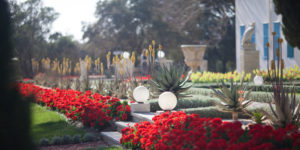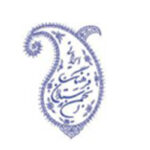From the Universal House of Justice to all who celebrate the Glory of God, October 2017
To all who celebrate the Glory of God
Dearly loved Friends,
This salutary truth we maintain: that the peoples of the earth have always been remembered by their God. In every era of history, that unknowable Reality has opened the gates of grace to the world by sending an Emissary charged with providing the moral and spiritual stimulus that human beings need to cooperate and advance. Many of the names of these great Lights to humankind are lost. But some shine out from the annals of the past as having revolutionized thought, unlocked stores of knowledge, and inspired the rise of civilizations, and Their names continue to be honoured and praised. Each of these spiritual and social visionaries, stainless mirrors of virtue, set out teachings and truths that answered the urgent needs of the age. As the world now faces its most pressing challenges yet, we acclaim Bahá’u’lláh, born two hundred years ago, as such a Figure—indeed, as the One Whose teachings will usher in that long-promised time when all humanity will live side by side in peace and unity.
From His early youth, Bahá’u’lláh was regarded by those who knew Him as bearing the imprint of destiny. Blessed with saintly character and uncommon wisdom, He seemed to be touched by heaven’s kindly light. Yet He was made to endure forty years of suffering, including successive exiles and incarcerations at the decree of two despotic monarchs, campaigns to vilify His name and condemn His followers, violence upon His Person, shameful attempts on His life—all of which, out of a boundless love for humanity, He bore willingly, with radiance and forbearance, and with compassion for His tormentors. Even the expropriation of all His worldly possessions left Him unperturbed. An observer might wonder why One Whose love for others was so complete should have been made the target of such hostility, given that He had otherwise been the object of universal praise and admiration, famed for His benevolence and high-mindedness, and had disavowed any claim to political power. To anyone who is familiar with the pattern of history, the reason for His ordeals is, of course, unmistakable. The appearance of a prophetic Figure in the world has invariably given rise to ferocious opposition from wielders of power. But the light of truth will not be put out. And so, in the lives of these transcendent Beings one finds sacrifice, heroism and, come what may, deeds that exemplify Their words. The same is evident in each phase of the life of Bahá’u’lláh. In spite of every hardship, He was never silenced, and His words retained their compelling potency—words spoken with the voice of insight, diagnosing the world’s ills and prescribing the remedy; words carrying the weight of justice, warning kings and rulers about forces that would ultimately sweep them from their thrones; words that leave one’s soul uplifted, awed and transformed, determined to free itself from the thorns and brambles of self-interest; and words that are clear, arresting, and emphatic: “This thing is not from Me, but from God.” Might one not ask, in considering such a life: if this be not from God, what can be pointed to that is?
The perfect Educators Who, throughout history, brought light to the world, left behind a legacy of sacred words. Within the words that flowed like a river from the pen of Bahá’u’lláh are gifts of enormous range and sublime character. Not infrequently, one who encounters His Revelation responds first to prayers of surpassing beauty that satisfy the soul’s longing to befittingly worship its Maker. Deeper in the ocean of His words are discovered the laws and moral imperatives to liberate the human spirit from the tyranny of worldly instincts unworthy of its true calling. Here, too, are found enduring ideals in whose light parents may raise children not simply in their own likeness, but with aspirations more exalted. There are also explanations that reveal the hand of God at work in the history of humankind’s winding journey through the stages of tribe and nation towards higher forms of unity. The diverse religions of the world are shown to be expressions of a single underlying truth, related to one another by a common origin, and also by a common purpose: to transform humanity’s inner life and outer conditions. Bahá’u’lláh’s teachings testify to the nobility of the human spirit. The society He envisions is one worthy of that nobility and founded on principles that guard and reinforce it. The oneness of the human family He places at the core of collective life; the equality of women and men He unequivocally asserts. He reconciles the seemingly counteracting forces of our own age—science and religion, unity and diversity, freedom and order, individual rights and social responsibilities. And among His greatest gifts is justice, manifested in institutions whose concern is for the progress and development of all peoples. In His own words, He has “blotted out from the pages of God’s holy Book whatsoever hath been the cause of strife, of malice and mischief amongst the children of men” and, concurrently, “laid down the essential prerequisites of concord, of understanding, of complete and enduring unity”. Might one not ask, what would be a befitting response to such gifts?
“It is the duty of every seeker to bestir himself and strive to attain the shores of this ocean,” Bahá’u’lláh states. The spiritual teachings brought by successive Messengers through the ages found expression in religious systems that, over time, have become fused with aspects of culture and weighed down with man-made dogmas. But look past these and it becomes clear that the original teachings are the source of the universal values through which diverse peoples have found common cause and which have moulded humanity’s moral consciousness. In contemporary society, the reputation of religion has suffered a great deal, and understandably so. If, in the name of religion, hatred and strife are promoted, it is better to do without it. However, true religion can be known by its fruits—its capacity to inspire, to transform, to unite, to foster peace and prosperity. It is in harmony with rational thought. And it is essential to social progress. The Faith of Bahá’u’lláh cultivates within the individual and the community the discipline of acting in the light of reflection, and by this means, insights gradually accumulate about effective ways to work for the betterment of society. Attempts at social change through political intrigue, sedition, vilification of particular groups, or outright conflict are condemned by Bahá’u’lláh, for they merely perpetuate cycles of struggle while lasting solutions continue to elude. He champions instruments of a very different sort. He calls for good deeds, kind words, and upright conduct; He enjoins service to others and collaborative action. And to the task of constructing a world civilization founded on the divine teachings, He summons every member of the human race. Might one not ask, in contemplating the breadth of His vision, upon what foundation shall humanity realistically build hope for the future, if not this?
In every land, those who have been attracted to the message of Bahá’u’lláh and are committed to His vision are systematically learning how to give effect to His teachings. Cohorts of youth are becoming ever more conscious of their spiritual identity and are directing their energies towards the advancement of their societies. People with divergent perspectives are discovering how to replace contention and the imposition of authority with consultation and the collective search for solutions. From every race, religion, nationality, and class, souls are uniting around a vision of humanity as one people and the earth as one country. Many who have long suffered are finding their voice and becoming protagonists of their own development, resourceful and resilient. From villages, neighbourhoods, towns and cities are arising institutions, communities, and individuals dedicated to labouring together for the emergence of a united and prospering world that might truly deserve to be called the kingdom of God on earth. On this two hundredth anniversary of Bahá’u’lláh’s appearance, the many who are part of this enterprise are reaching out to those around them with a simple invitation: seize this opportunity to find out who He was and what He represents. Put to the test the remedy He has prescribed. His coming offers sure proof that the human race, threatened by numerous perils, has not been forgotten. When so many people of goodwill throughout the world have for so long beseeched God for an answer to the problems that beset them in their common homeland, is it so surprising that He should have answered their prayer?
– The Universal House of Justice
Category: Institutions, Messages, Universal House of Justice









